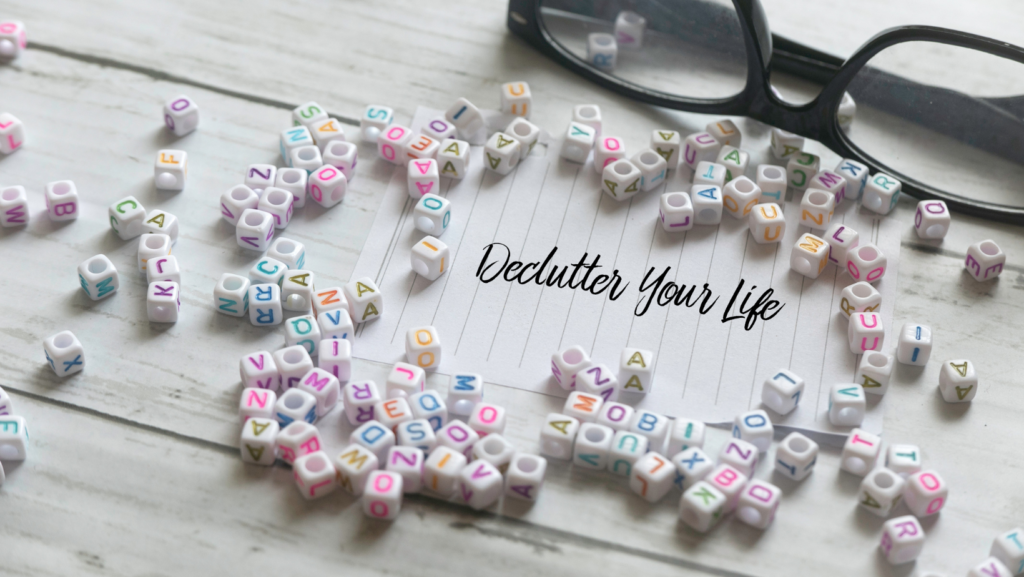Subscribe to My Newsletter 👉 Here
Happy Saturday, Everyone!
I hope you’re all doing well today.
Last week, I had the opportunity to delve deep into the world of minimalism, and I can honestly say that it was an eye-opening experience.
At first glance, minimalism might seem like it’s all about decluttering and getting rid of things you don’t need. However, I quickly discovered that it’s so much more than that.
It’s a lifestyle that’s all about simplifying your life and making room for what truly matters, physically, mentally, socially, emotionally, and in all aspects of our lives.
There are many benefits to adopting a minimalist lifestyle. For one, it can help reduce stress and anxiety, as you’ll have fewer things to worry about and take care of.
Additionally, it can help you prioritize your time and energy, allowing you to focus on the things that truly matter to you. And of course, there are the environmental benefits, as minimalism can help reduce waste and promote sustainability.
Let’s break this down 👇
The Less You Own, The Less Owns You
Buying new stuff feels great—at first. But soon, these things just become part of the scenery in our homes and part of the clutter in our minds.
Think about it: the more stuff you have, the more you need to clean, repair, or replace it. And let’s be honest, keeping track of all your things can feel like a job on its own.
This mental weight adds stress and can even take a toll on your well-being.When you own less, you’re not just making space in your home; you’re freeing up mental and emotional energy.
This gives you more time and freedom to do the things that really make you happy—be it spending time with family and friends, diving into hobbies, or simply enjoying a leisurely afternoon.
Less stuff also means you can be more mindful about what you do bring into your life. Instead of impulse buying or going with the latest trends, you can focus on what you really need and what truly adds value to your life.
What to Do:
Start Small: This isn’t about throwing away all your belongings. It’s about making choices. Take 5 things you haven’t used or worn in the past six months and give them a new home; sell them, donate them, or if they’re beyond repair, responsibly recycle them.
Keep this habit going every week. Bit by bit, you’ll see your space—and your mind—clear up.
Relevant Resource:
“Goodbye, Things: The New Japanese Minimalism” by Fumio Sasaki: This book offers an in-depth but simple guide to the philosophy of owning less.
Fumio Sasaki shares his personal journey from being overwhelmed with stuff to embracing minimalism. It’s a great read for anyone interested in learning about the benefits of owning less and how to go about it.
Clearing Your Head
We often think about minimalism as cleaning up our rooms or throwing out old clothes. But what about the clutter inside your head?
Old grudges, fears, or stressors take up mental space just like physical items do. And let’s be real—clearing out your mind can feel a lot harder than cleaning up your room.
Why is a cluttered mind a problem? Well, it can make you feel constantly distracted, unable to focus, and maybe even anxious. It’s hard to live in the moment when your mind is stuck on a past argument or worried about something in the future.
So, what’s the trick to cleaning up your mental space?
What to Do:
Mindfulness Moments: Here’s a simple thing to try. Take 5 minutes out of your day, find a quiet spot, and just focus on your breathing.
Don’t try to block out other thoughts; just let them come and go. This helps you be present and can actually lower your stress levels.
If you’re a beginner and need guidance, apps like Headspace or Calm offer beginner-friendly meditations.
Journaling: Got a lot on your mind? Grab a notebook and write it down. Don’t worry about making it look neat or sound smart.
This is just for you. Writing down what’s bothering you can help you understand your feelings better. It can also help you see how far you’ve come in reaching your goals or even just in understanding yourself.
I’ve personally used this method and have found it to be very helpful in reaching my goals and gaining a better understanding of myself.
Relevant Resource:
“10% Happier” by Dan Harris: This book is great for anyone who is skeptical about meditation but wants to give it a try.
It’s written in a very down-to-earth style and offers practical advice on using mindfulness to reduce stress, improve focus, and clear your mind.
Choosing Your People Wisely
When we talk about minimalism, it’s easy to focus on things—stuff you can touch and see. But what about the people in your life? The idea of ‘social minimalism’ is becoming more popular, and for good reason.
Just like an overflowing closet can make you feel overwhelmed, relationships that are draining can be just as cluttering. When you surround yourself with people who constantly bring you down or stress you out, it’s like letting emotional clutter pile up.
What to Do:
Make a List: Jot down the names of people who you feel bring negativity or stress into your life. This might include friends, family, or co-workers. The goal isn’t to cut people out, but to see clearly who is affecting your well-being.
Evaluate: Now, look at that list and think about each relationship. Is this person always negative? Do they make you feel bad about yourself? Your time is valuable; consider if these relationships are worth your emotional investment.
Communication: Sometimes, a conversation can make a world of difference. If someone on your list is important to you, talking openly about how you feel could help improve things. Honest conversations can be tough but also liberating.
Boundaries: Maybe the issue isn’t big enough for a serious talk, but still bothers you. In that case, setting boundaries can help. This could mean hanging out less often, or avoiding certain topics that lead to stress or arguments. It’s okay to put your own well-being first.
Relevant Resource:
The Minimalists Podcast, which is a popular show hosted by Joshua Fields Millburn and Ryan Nicodemus, who are collectively known as The Minimalists.
They discuss the benefits of living a minimalist lifestyle, which goes beyond just decluttering physical possessions. Topics often extend to emotional well-being, financial independence, and even how minimalism can improve relationships.
Give minimalism a try. Start today, even if it’s just a small step. You’ll feel a weight lifted off your shoulders, I promise.
Have a great weekend!
Ehab Badran


